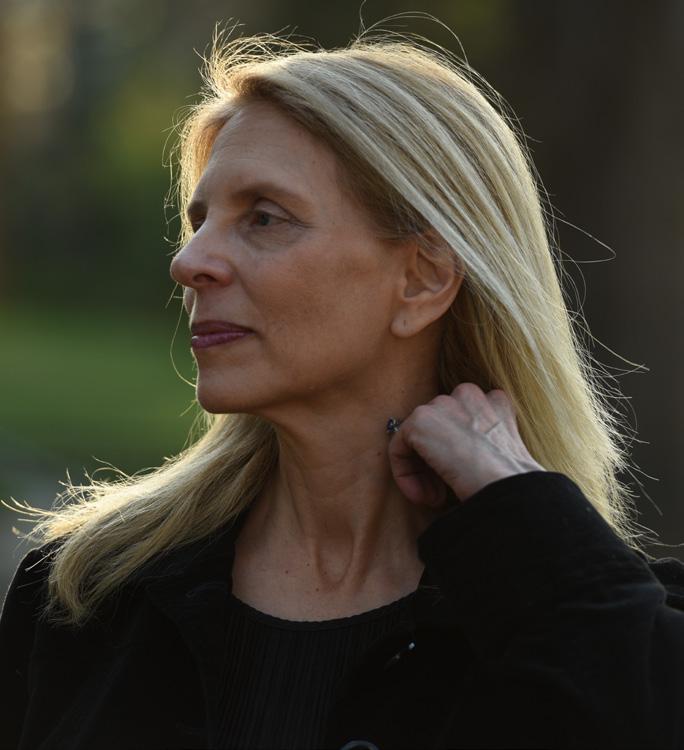
6 minute read
FINDING A BALANCE BETWEEN ISRAEL AND THE DIASPORA
When we started talking about an “Israel at 75” anniversary issue, Israeli Prime Minister Benjamin Netanyahu was out of office for the first time in 12 years. That brief interlude, during which the country cobbled together a centrist consensus, came to an end last fall when Netanyahu’s new far-right coalition took over. After years of simmering, the divisions within Israel have now boiled over and are testing its unity. We are seeing Israeli Jew vs. Israeli Jew, communities with sharply divergent visions of what Israel should be, each adamantly convinced they are right.
Those divisions may come down to this: those who want Israel to be a secular modern democratic nation—at least for Jews—with all its joys and flaws, and those who want a very different kind of state, one markedly less free and inclusive. It’s no secret why Israel’s far-right wing has made the country’s Supreme Court its sacrificial lamb. While the nation’s founders clearly envisioned Israel as a full-fledged parliamentary democracy, they failed to draw up a constitution or abolish the rabbinate, which was absorbed from the Ottoman legal system. Without a constitution on the books, it is the court that has established the
Tensions between the court and Israel’s legislative and executive branches are not new. But never has a ruling coalition come so dangerously close to destabilizing the balance of Israel’s separate branches of power. That the court has been branded left-wing is not wholly accurate. Its decisions fully satisfy neither right nor left, and it treads carefully, aware of the precariousness of its position. In 2020, for example, the court ruled that Netanyahu could form a new government despite being under indictment for corruption, to the dismay of his opponents. Let us hope that the court’s independence will not be curtailed. Democracies are messy, but in the long run those with independent judicial systems are less likely to slide into authoritarianism.
Even before the legislative offensive by the Netanyahu government, we had planned to ask historians and others a “Big Question” in search of some much-needed perspective. After considerable discussion we settled on “What does Israel reaching 75 mean in the context of 3,000 years of Jewish history?” Due to the crisis, the responses are less celebratory of this milestone than we originally imagined, and many are tinged with pain, even despair. We asked our rabbis the same question, and their answers are also telling.
One common refrain is the belief that the modern State of Israel is or should be the center of Jewish life and is the best hope for Jewish continuity. I am uncomfortable with this for several reasons. One is historical: Many of the great achievements of Judaism and Jewish culture have occurred in galut, exile, or to use the slightly less negative word, diaspora. These include the Babylonian Talmud; the classic commentaries of Rashi and Maimonides; Iberian mysticism; the Haskalah or Jewish Enlightenment in Western and Central Europe; Hasidism in Eastern Europe; and the great flourishing of new denominations in the United States, just to name a few.
BY NADINE EPSTEIN
The millennia-long tango between diaspora Jews and their surrounding cultures has brought us many gifts, though it has been punctuated by much suffering.
There is another reason for my discomfort, stemming from my role as editor-in-chief of a magazine founded nearly 50 years ago for the American Jews who didn’t pack up and move to Israel, but chose to stay and build a vibrant Jewish life here. Moment is part of the extraordinary thriving of Jewish life in the United States that has evolved largely unfettered by the kinds of religious strictures imposed by Israel’s rabbinical courts, although of course it has been affected by them, as well as by Israel’s wars and politics. I am always amazed at the fresh ways Judaism is expressed and practiced here. This phenomenal creativity is constantly transforming the American Jewish world, birthing new ideas and projects, theology, literature and art, all nourished by endless kibitzing and arguments.
This is why we should not be hesitant to say that both the diaspora and the ingathering enhance Jewish resiliency and creativity. Israel is an astonishing achievement of the Jewish people, a melting pot of cultures, a cauldron of creativity and a necessary home for Jews—but it is not the only home. The Jewish past and future demand both a homeland and a diaspora, and it is our ongoing responsibility to find a balance between them.
Building bridges between the diaspora and Israel is more than a matter of language. I know Israelis who speak English fluently who cannot understand America, or American Jews for that matter, and I know Americans who speak Hebrew who see only very narrow slivers of Israel. Travel, too, is not reliable: it depends on where you visit and who you meet. In this issue, we bridge the divide through the power of culture. One of our guides is Yossi Klein Halevi, who shares his favorite Israeli songs—a playlist that illuminates how Israelis think. Another guide is Omer Friedlander, who leads us on a tour of the land through its literature. In “Visual Moment,” by Arts & Articles Editor Diane M. Bolz, we see the
Moment is a close-knit family, and we were shocked as we prepared to go to press with this issue when George E. Johnson, one of our senior editors, suddenly passed away. George, who came to Moment after a distinguished career as a lawyer and writer, became observant after serving as an intelligence officer in Vietnam as a young man. He was a wise and thoughtful colleague and a beloved presence in editorial meetings. We miss him greatly. To read his work and watch his MomentLive! program about his experiences in Vietnam, visit https:// momentmag.com/george-e-johnson.
We dedicate this issue to George. May his memory be a blessing.
Dead Sea through the inventive eyes of an artist concerned for its survival.
“Jewish Word” by Moment fellow Jacob Forman is a historical dive into how Israel got its name just a few hours before the state was declared. Digital Editor Noah Phillips introduces us to an environmentalist who has expanded the definition of national security. “Moment Debate” asks: Has the word Zionism outlived its usefulness? And since we couldn’t mark Israel’s 75th without inviting women to the party, I pay homage to some of Israel’s great ones. Finally, there’s food, perhaps the greatest human connector of all. Chef Vered Guttman has designed a menu drawn from the foods Israelis ate in 1948. It is a feast that fuses together the varied and rich cultures on which Israel was built.
As usual, we couldn’t fit everything into print—so sign up for Moment Minute at momentmag.com/newsletter to read about Israel’s top innovations, iconic objects and archaeological finds, as well as what may happen when Mahmoud Abbas is no longer on the scene. At momentmag.com/zoominars, watch an “Israel at 75 Book Series,” in which Opinion & Books Editor Amy E. Schwartz talks with Robert Alter about poet Yehuda Amichai and with Etgar Keret about short stories. We hope your spring will be enriched and inspired by these offerings and look forward to hearing your thoughts!
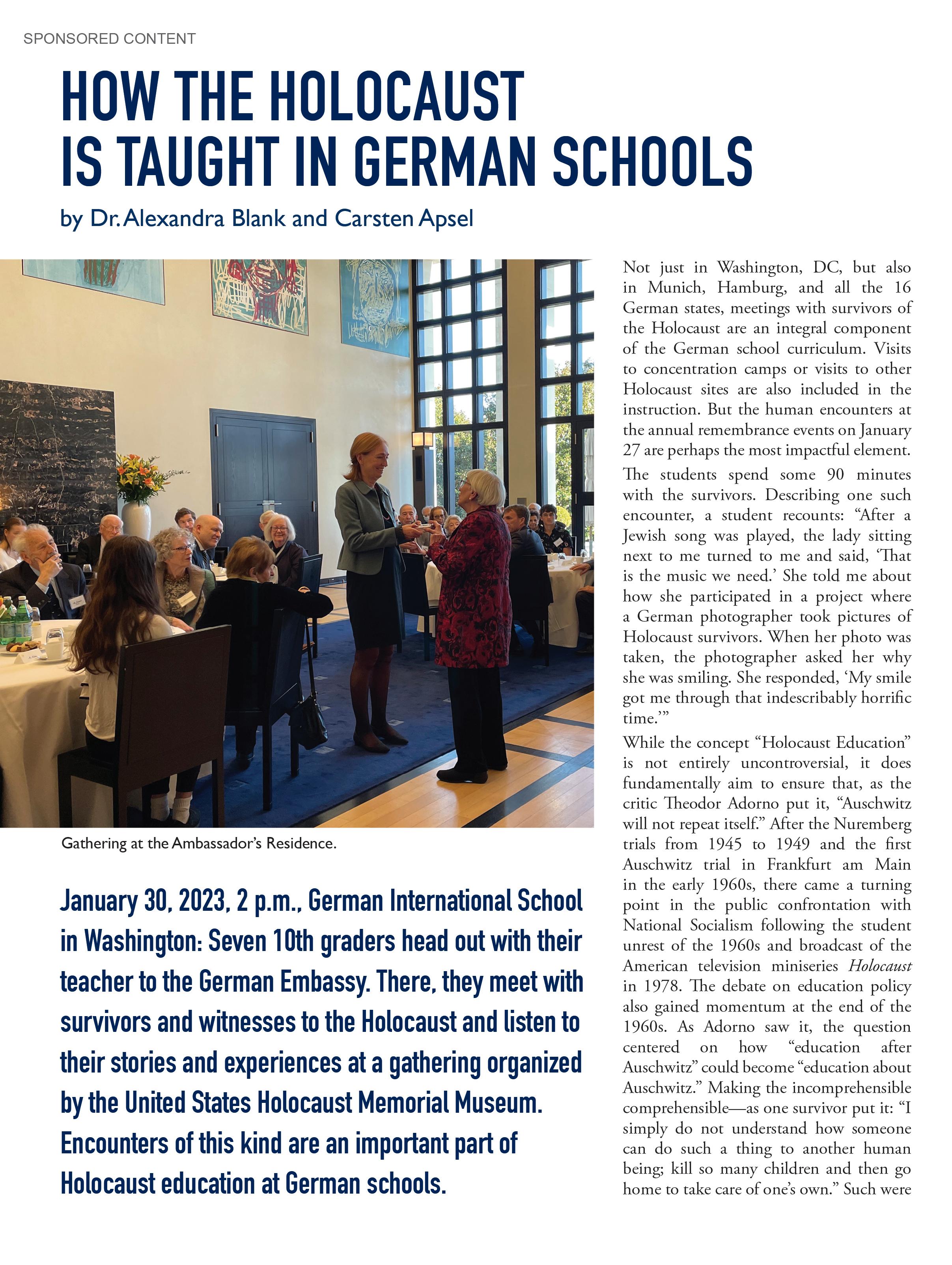
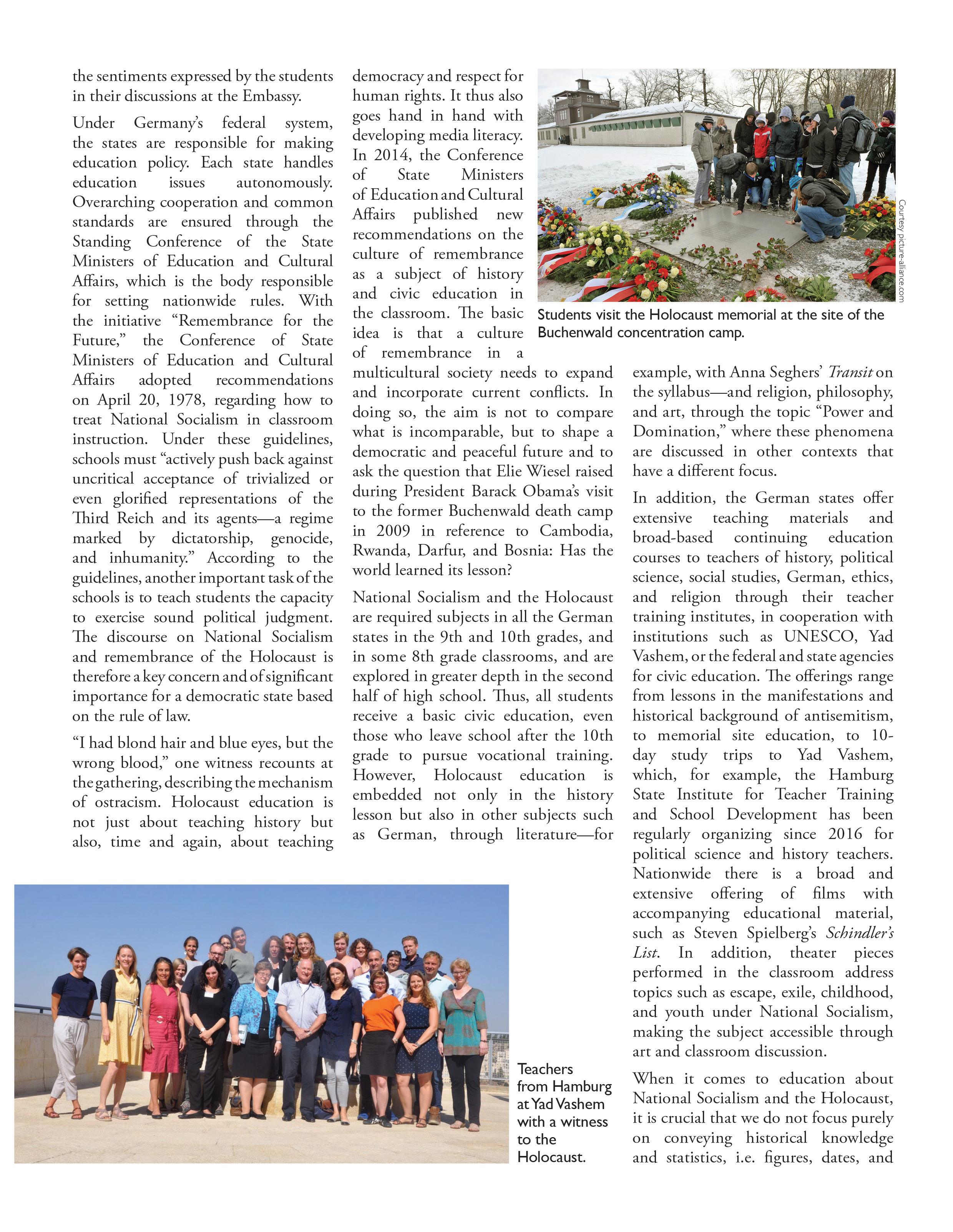
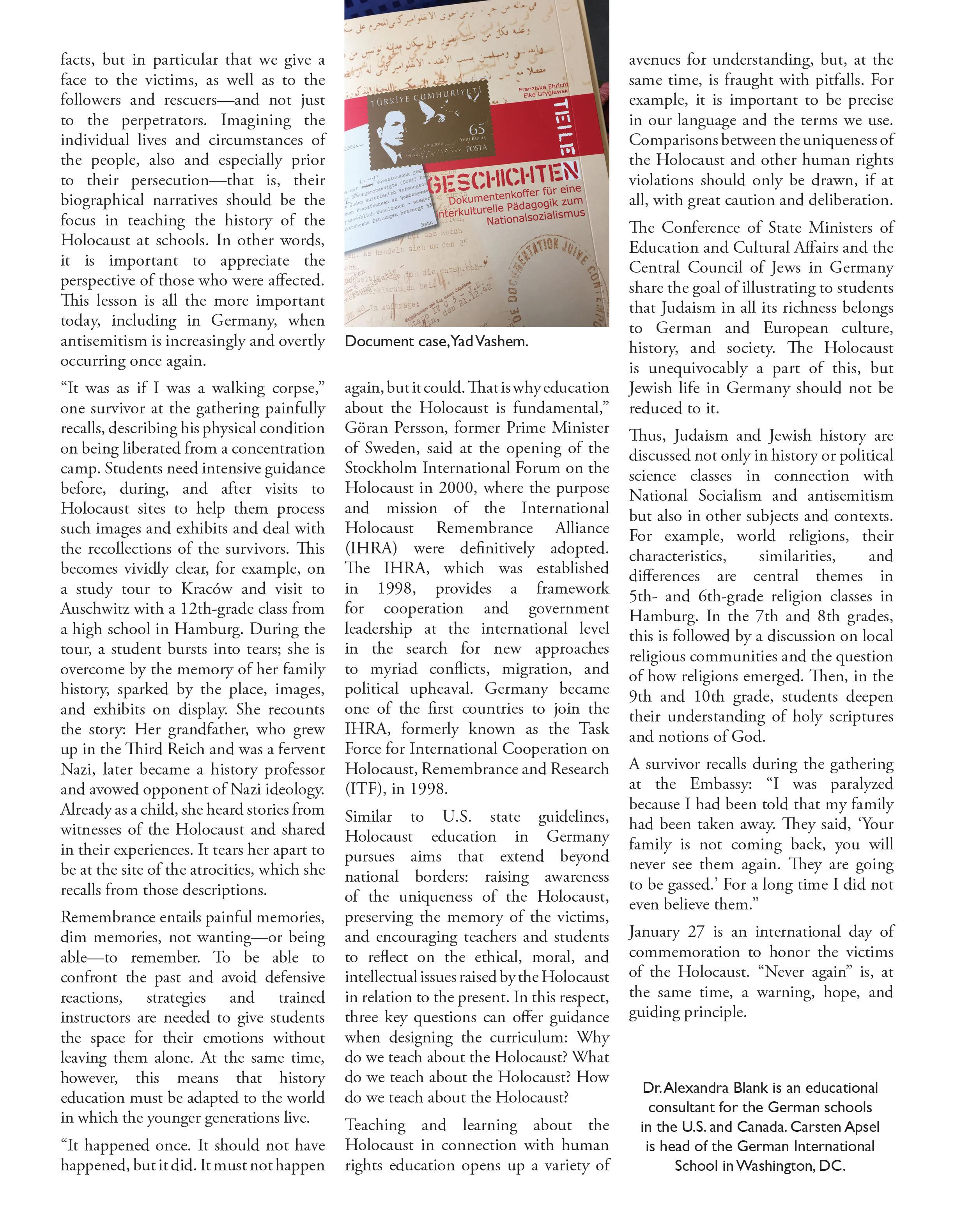
Visual Moment
FOUR WINTERS, TWO THUMBS UP
I just read the article about the film Four Winters (“Tales of Rifles and Resistance” Winter 2023) and I thought it was terrific—detailed and evocative. Great choices were made about which elements in the film to highlight, and there were vivid quotes from the film’s director. I also loved how the photos were used in the article.
All the attention that Four Winters is receiving means the partisans’ stories will be heard more widely. ABC News, for instance, did a piece about the film in honor of Holocaust Remembrance Day. That sort of coverage as well as Moment’s article and all the other media attention is really useful in spreading the word about Jewish bravery and resistance during WWII.
Emily Mandelstam
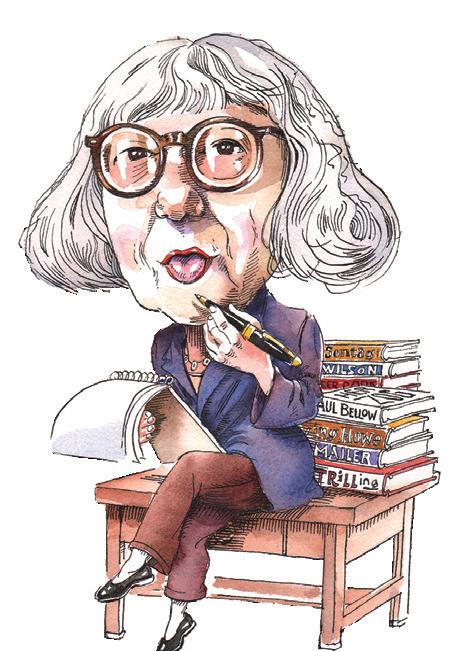

MOMENTLIVE!
Another Great Program
Thank you for the recent program “The Educational Legacy of Julius Rosenwald and Booker T. Washington.” I was aware of the Rosenwald schools and heard several interviews with Andrew Feiler when his book on the topic came out. My most enthusiastic praise is for the ease of registering and joining on my computer despite having registered on my phone. Thank you for a stellar program and for a very easy experience to join and enjoy it.

Louise Eighmie Turner
Atlanta, GA
Editor’s note: All programs are available at momentmag.com/zoominars

Moment Debate Poll
In the previous issue, Moment asked if changing the Law of Return will harm Israel-diaspora relations. We asked our Twitter followers to weigh in. The majority answered yes.
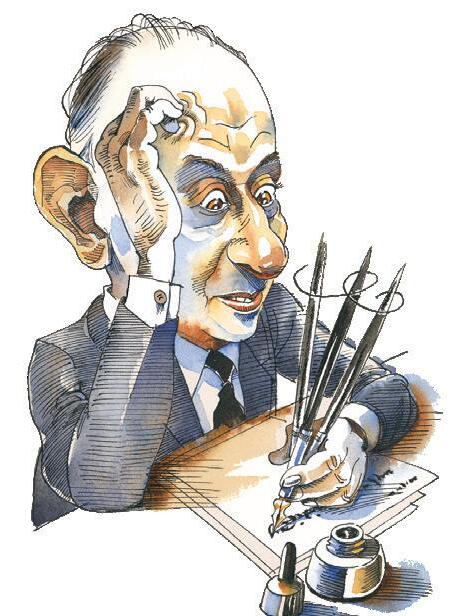

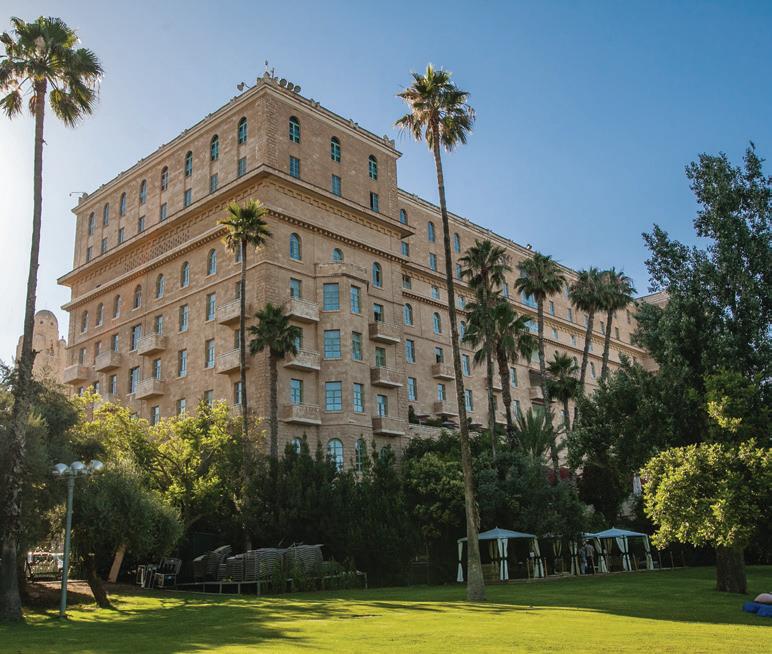
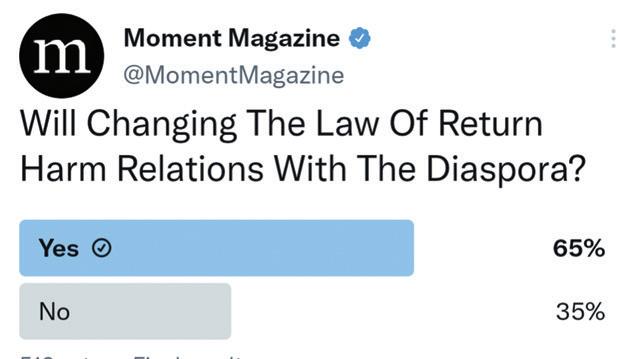
COTTIN POGREBIN






